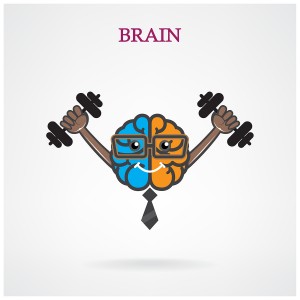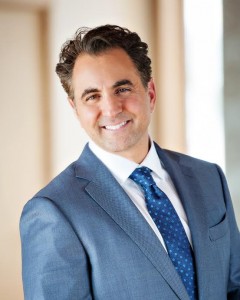 In Part 1 of this post, we continued our discussion about the brain being the key to changing our behavior and transforming our bodies. I listed the various ways exercise can strengthen the brain as outlined by Dr. Daniel Amen in his book, Change Your Body, Change Your Brain.
In Part 1 of this post, we continued our discussion about the brain being the key to changing our behavior and transforming our bodies. I listed the various ways exercise can strengthen the brain as outlined by Dr. Daniel Amen in his book, Change Your Body, Change Your Brain.
Now, it’s time to discuss what happens to the body and brain when we don’t exercise. It’s not pretty.
Lack of exercise leads to obesity, which has reached epidemic levels in our country, especially with our children.
Studies have shown that obese children who become obese adults have an 80-90 percent chance of staying obese for the rest of their lives. We need to get our kids moving.
To me, one of the greatest phrases in the English language is, “Go outside and play!”
Turn off the computer, TV and video games and encourage your kids to go outside. Ride a bicycle, go swimming, jump rope, play sports or show off their dance moves. Free, unstructured play is a great way for kids to avoid obesity.
Lack of exercise also negatively affects blood flow. When you don’t get your blood pumping, nitric oxide levels drop, which causes blood vessels to become distorted. This limits the blood’s ability to pulse freely and puts you at an increased risk for heart disease, high blood pressure and stroke.
Without adequate blood flow, blood vessel distortion extends to the deep areas of the brain, which increases the risk of “tiny strokes.” These deep areas of the brain control things like leg movement, coordinated body movement and how quickly we think and behave.
As years go by, tiny strokes have a cumulative effect and cause the deep areas of our brain to shut off and stop working. That’s why people over the age of 40 who don’t exercise aren’t as mentally sharp as those who do exercise.
So what types of exercise are great for the brain?
Of course, cardiovascular training increases our heart rate and promotes blood flow, while resistance training like weightlifting promotes muscular growth. However, coordination activities such as balance therapy and coordination therapy are often neglected in people’s exercise routines.
A simple exercise you can do is stand on one foot with no shoes on in front of the mirror, staring straight ahead. Do this for 30 seconds on each side, back and forth, every morning and every night. That’s a simple form of balance therapy.
Think about it for a second. How many times have you seen or heard about elderly people falling because they lost their balance? This type of exercise is extremely important for the brain.
Actually, one of the best brain sports you probably would never consider is ping pong, or table tennis.
Think about what a game of ping pong involves. Eye-hand coordination. Quick reflexes. Tracking a fast-moving ball through space. Determining the spin of the ball to predict where and how it will bounce. Strategizing on the fly. The execution of moving your body into the optimal position and hitting the ball with a small paddle.
That’s a great workout for the brain! Ping pong is inexpensive and can be played year round.
Just like free play is great for kids, it’s great for adults, too. Go dancing or hiking. Go to the park and play tennis or throw a frisbee. Play a round of golf and leave the motorized cart at the clubhouse.
If you’re going to make the commitment to change and transformation, exercise must be part of the equation – not just for the heart and muscles, but for the brain. As Dr. Amen says, we need to respect and protect the brain, and exercise helps us do both.
 Dr. James Proodian is an accomplished chiropractic physician and health educator who founded Proodian Healthcare Family of Companies to help people feel better, function better, and live longer. His expertise for the past two decades has been in physical rehabilitation, and he has successfully established himself as a spinal specialist. In his practice, he advocates the science of functional medicine, which takes an integrative approach to treating patients by addressing their physical, nutritional, and psychological needs. Alarmed by the escalation of complex, chronic illness in our country, Dr. Proodian has been speaking to companies and organizations through his “Wellness at Work” program since 1994, motivating thousands of people to make positive lifestyle choices and lead healthier, more productive lives. He can be heard weekly on his radio program, “Proodian Healthcare By Design,” on Tandem Radio.
Dr. James Proodian is an accomplished chiropractic physician and health educator who founded Proodian Healthcare Family of Companies to help people feel better, function better, and live longer. His expertise for the past two decades has been in physical rehabilitation, and he has successfully established himself as a spinal specialist. In his practice, he advocates the science of functional medicine, which takes an integrative approach to treating patients by addressing their physical, nutritional, and psychological needs. Alarmed by the escalation of complex, chronic illness in our country, Dr. Proodian has been speaking to companies and organizations through his “Wellness at Work” program since 1994, motivating thousands of people to make positive lifestyle choices and lead healthier, more productive lives. He can be heard weekly on his radio program, “Proodian Healthcare By Design,” on Tandem Radio.